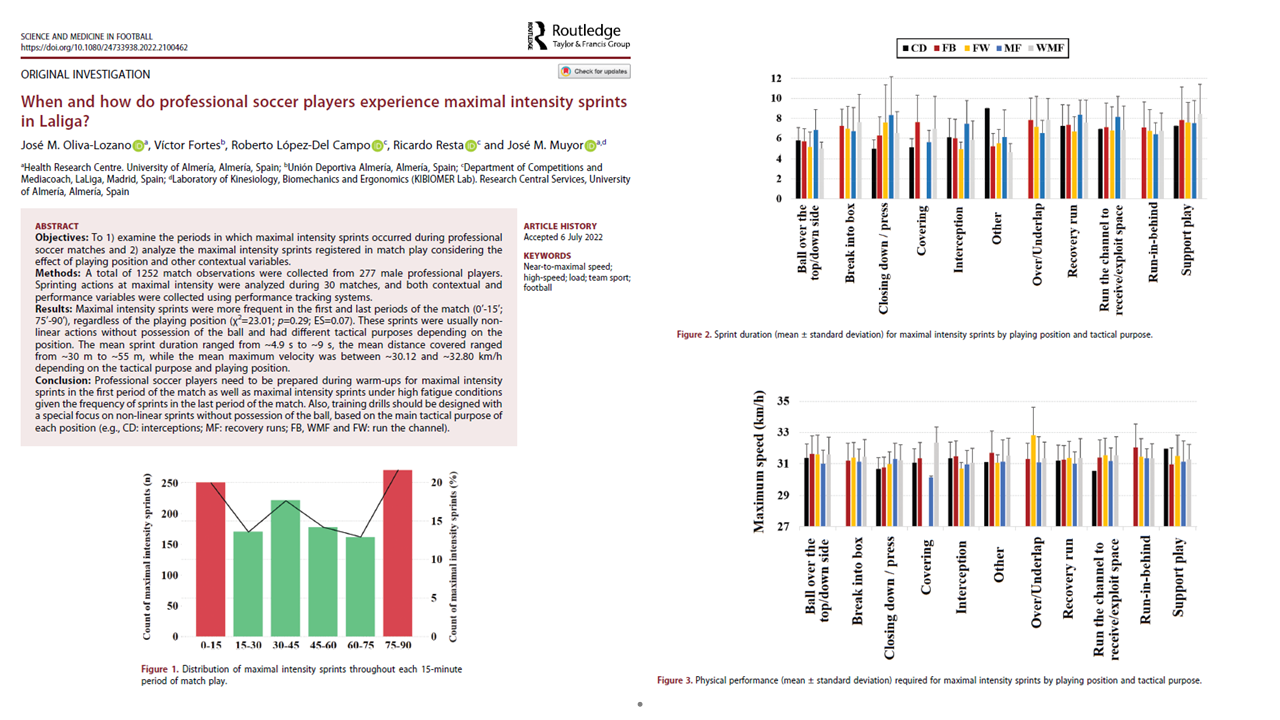
16 May How Does Ball Possession Affect the Physical Demands in Spanish LaLiga? A Multilevel Approach
Posted at 13:31h
in Paper
Possession is more than just a tactical concept—it changes the physical profile of the match. This study analyzed 1,520 LaLiga matches across four seasons (2015–2019) using Mediacoach® tracking to explore how ball possession impacts the distance covered at different speed zones.
Key insights for coaches and performance staff:
- More possession, less distance: At both match and team levels, higher possession was linked with shorter total distance and less medium-intensity running.
- High-possession teams optimize intensity: Teams that regularly hold the ball cover fewer meters in medium and high-intensity zones, showing efficiency and coordinated movements.
- Low-possession teams work harder: When these teams exceed their average possession in a match, they often cover more distance at high speeds—suggesting they need extra effort to sustain control.
- Context matters: The relationship between possession and running demands changes depending on whether teams are above or below their season averages, underlining the importance of situational analysis.
Practical applications:
- Training loads can be adjusted based on expected possession patterns—anticipating less volume but sharper intensity for possession-dominant teams.
- Opponent scouting should consider how their possession style impacts physical demands; pressing a high-possession team may require more high-intensity runs.
- Match analysis should integrate both technical-tactical metrics (possession) and physical metrics (running profiles) to give a complete picture.
- Coaches can prepare sessions that replicate match realities: compact pressing for low-possession teams vs. efficiency and positional play for high-possession sides.
Read the full paper here (DOI): https://doi.org/10.1080/24733938.2022.2100462


